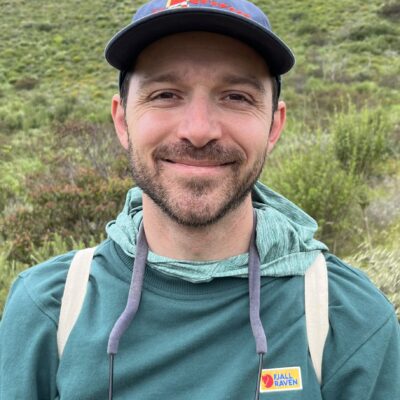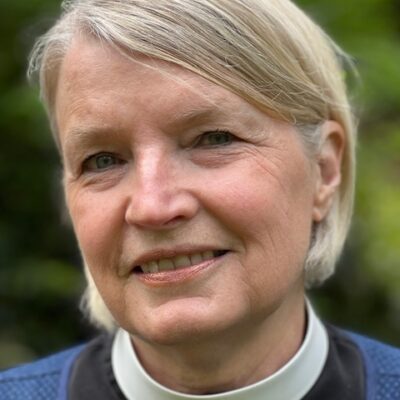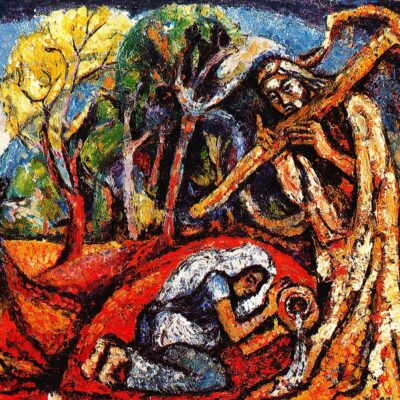It has been another horrible week in the news. As you heard about the mass shootings in Buffalo and Uvalde, the continued war against the people of Ukraine, and the uptick in COVID cases close to home, what was your reaction? How did you feel? I’m really asking for a response here. Feel free to speak out loud a word or phrase that describes how these events impacted you. What emotions did they bring up?
So many people are weighing in with what to do or not to do in response to these events. We all want to make a difference, see the war end, to reduce the number of people killed in gun violence, and control the spread of the pandemic. But we’re aware of our limitations. We wonder what we can do. We careen from crisis to crisis without making a substantial impact on any of them. We know the hypocrisy and futility represented by an invocation of “thoughts and prayers,” but we also know the paralysis of our divided political will and how difficult it is to agree upon any course of action.
Today I want to dig down into some of the options and resources that we have as people of faith in these tragic and difficult circumstances. Yes, I know we’re all cynical about the role of religion in many of our intractable social ills. We’ve become exhausted waiting for God to deliver us from evil and violence. It’s not hard to come to the conclusion that the Christian faith and, in particular, the church has nothing to offer in the face of these powerful forces.
So let’s start with the obvious. Christians, along with many other faith traditions are people of prayer. We pray in church. Some of us pray at home or around the table. Many pray in private or engage a regular practice of prayer. St. Luke’s has a weekly prayer meeting. There are prayer lists and prayer apps. And yet, what good does it do? Does it make any difference? Apparently not for some. In many cases prayer is dismissed as not only irrelevant but even harmful when it covers up for lack of action, lack of commitment to justice and a failure to care.
So let’s take a look at some examples of prayer from our Christian history. Today we heard about the Apostle Paul and his companion. In Phillipi, they went to a public place of prayer. This was probably not a Christian site, but likely a Jewish or even Roman one. A place of prayer is one where humans bring their gratitude, sorrow, longing, lament and celebration. If you want to go deeper with people, listen to their prayers, their heart’s desires, the things which make them angry or joyful.
One thing that made Paul angry was a woman held in slavery who had a supernatural ability to discern that Paul and Silas were slaves as well, but they were slaves of God, unlike the woman whose enslavers took advantage of and profited off of her. Paul gets so irritated by her persistence that in the name of Jesus he casts out the spirit of divination
Paul and Silas found themselves imprisoned for this act. They were beaten, shackled and locked away. And yet, in prison, in the most difficult of circumstances, they prayed and sang hymns. The jail cell breaks open, but that’s not the most amazing demonstration of their faith. What transforms this situation is not that they escaped but rather that they turned to prayer in their desperation and they turned to love when they encountered their jailer. Everything changes, not when they are freed, but rather when they offer faith, and hope and love to another.
What good is it to pray when injustice triumphs and innocent people are jailed? I think of all those of African descent in America who have been wrongly imprisoned: of Fannie Lou Hamer who was inspired by this very passage from Scripture when she was ferociously beaten and thrown in jail; of John Lewis who went to prison over 20 times and continued to faithfully follow his course of non-violence in the face of police brutality; of Martin Luther King from the Birmingham jail who wrote a scathing letter to white clergy that continues to convict and change us to this very day.
Prayer while facing evil and injustice reminds the one praying that they are a child of God, that they are worthy of dignity and respect, that God is on the side of the lowly and oppressed and that they are in solidarity with Paul, Silas and all those who have been persecuted and yet triumphed. Prayer is a crack in the prison wall, a light in a darkened room, the presence of love in the midst of hatred.
I heard parents and relatives of the slain in Uvalde asking for our prayers. To them it is not nothing that we show our love and care for them, by remembering them, grieving with them, praying for them and praying for change. Prayer changes us and brings us closer to those for whom we pray.
Another aspect of the Christian faith that can seem irrelevant and futile is the belief that Jesus will come again, that there will be a reckoning of justice and a restoration of all of creation when he who was the first will return to be the last, both Alpha and Omega. Let me be clear that I am not speaking of the dubious doctrine of the Rapture and some Apocalypse of destruction. These are later constructs popularized in Christian fiction and sensationalism and not part of the long tradition of the ultimate fulfillment of all creation in Christ.
For centuries the hope of the return of Jesus, particularly as expressed in apocalyptic literature like the Book of Revelation is primarily addressed to those who are suffering in this life. It is testimony to the great reversal that the last will be first, the lowly will be lifted up, the poor will be blessed and that death will be conquered.
This hope and trust is particularly for those whose backs are against the wall; for the prisoner of war drowning in loneliness and fear; for the martyrs who risk their lives for the sake of truth and righteousness; for all those who have suffered and died as victims of injustice, racism, and hatred. The hope-filled vision of deliverance is described as beholding the dawning of the morning star, of walking through the gates of paradise where there is access to the tree of life. This promise is for all those who share in the suffering and death of the innocent one, Jesus the Christ. It is through his passion that death has been defeated and God has triumphed over sin and every evil power.
If you have ever been in worship with an oppressed people who claim this vision for themselves, you will never forget it. There is passion and power when they pray to and worship God, their deliverer. You may even hear shouts of Maranatha, Come Lord Jesus.
One summer I worked, worshiped and lived at Maranatha Church in the historically Black neighborhood of N. Portland, OR. Each Sunday after a difficult week of running a day camp on site for pre-teens, my team of white college students and I would settle into the sanctuary for 2 ½ hours of prayer, praise, preaching and music. As long as I brought a snack to keep up my strength, this is what sustained me through a difficult and dangerous summer.
I have been overwhelmed in churches in Guatemala, Kenya, Mississippi and even here in the Pacific Northwest as an outsider, privileged to catch a glimpse of the heart and soul of a people who believe that Jesus will turn this world upside down and transform the nightmare that it has become into the dream of God.
Finally, let’s dig deeper into the prayer that Jesus offers for us. In the Gospel of John, most of chapter 17 is Jesus praying. It is John’s version of the Lord’s prayer, not a prayer he is teaching his disciples, but the prayer he offers for them, for us and for the entire world. It is the heart of Jesus, poured out to God in the minutes and hours before he is betrayed to crucifixion.
When people ask us to pray for them, I like to think that we are holding them in our heart, which is held in the heart of God. Not only does Jesus first love us so that we might love others, Jesus prays for us and enables us to pray for others. The love between God and Jesus draws all of creation into it. As we are drawn into God, our love increases and expands, not just to those we like and know personally but to the stranger and even the enemy.
I remember promising a young woman from church that I would pray for her as she embarked on a 2 year assignment as an agricultural missionary with the Episcopal Church of S. Sudan. I prayed faithfully for her and got updates about the people she was meeting and about the vote for independence for this new country. My heart was expanded. I met other South Sudanese, in particular, some of the “Lost Boys.” They shared their stories with me. And through this I was changed.
When the opportunity to travel to S. Sudan with my friend came up, I immediately said yes. That experience gave me a lifelong connection to the people of this country. Bryon and I had the privilege of paying for the seminary education of two of the first young women ordained to the priesthood there. I’ve preached and taught there and continue to maintain relationships with the young priest who has now become bishop of the very diocese I began praying for 15 years ago.
What Jesus prays for is that we may be one, one with God, one with each other. There is so much that separates us, so many ways we find to be against others. It is Jesus’s experience of the love of God that breaks down these boundaries and barriers. Love is the most powerful force in the universe, in fact it is the driving force behind all that is created.
We’re hurting now. I’m grateful for those who give words to our thoughts and feelings, who help us to find our way through tragic times, for the stories of our ancestors in faith who endured and passed on their faith, hope and love. Let me close with the words of our national poet, the young and amazingly insightful Amanda Gorman:
Everything hurts,
Our hearts shadowed and strange,
Minds made muddied and mute.
We carry tragedy, terrifying and true.
And yet none of it is new;
We knew it as home,
As horror,
As heritage.
Even our children
Cannot be children,
Cannot be.
Everything hurts.
It’s a hard time to be alive,
And even harder to stay that way.
We’re burdened to live out these days,
While at the same time, blessed to outlive them.
This alarm is how we know
We must be altered —
That we must differ or die,
That we must triumph or try.
Thus while hate cannot be terminated,
It can be transformed
Into a love that lets us live.
May we not just grieve, but give:
May we not just ache, but act;
May our signed right to bear arms
Never blind our sight from shared harm;
May we choose our children over chaos.
May another innocent never be lost.
Maybe everything hurts,
Our hearts shadowed & strange.
But only when everything hurts
May everything change.






Leave a Reply